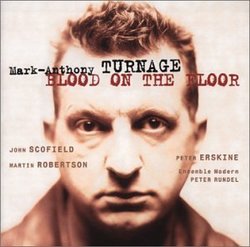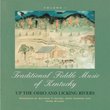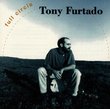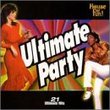| All Artists: Turnage, Scofield, Roberts, Erskine, Rundel Title: Mark-Anthony Turnage: Blood on the Floor Members Wishing: 1 Total Copies: 0 Label: Decca Original Release Date: 1/1/2000 Re-Release Date: 5/9/2000 Genres: Jazz, Classical Styles: Chamber Music, Historical Periods, Classical (c.1770-1830) Number of Discs: 1 SwapaCD Credits: 1 UPC: 028945529226 |
Search - Turnage, Scofield, Roberts :: Mark-Anthony Turnage: Blood on the Floor
 | Turnage, Scofield, Roberts Mark-Anthony Turnage: Blood on the Floor Genres: Jazz, Classical
|
Larger Image |
CD DetailsSimilar CDs
|
CD ReviewsTorn Tender Combo | Medina, OH United States | 08/09/2000 (3 out of 5 stars) "I feel torn between my fondness for Turnage's music and the partial disappointment that this piece of music represents to me. Several movements of this piece are extremely exciting and a joy to experience. Others--the ones that feature a large proportion of improvised material--make for nice listening once or thrice, but lose their appeal quickly. One of Turnage's strong points as a composer is his marvelous talent for development. When, as in this piece, he leaves that development up to others, it leaves me wanting. As always, Turnage's orchestration is beautifully colorful and distinctive, and the movements run the gamut from placid to raucous. This was certainly a worthwhile experiment on his part, but I think that, when he places such a dependence for musical contributions on other artists, Turnage sells his potential short. I do suggest that you check out this recording, but I cannot give it my best review. I can only wait for more recordings by this wonderful composer." An Exciting turn for Turnage Dennis Ruff | Los Angeles, CA USA | 07/24/2000 (5 out of 5 stars) "If you are a captive of categories, you will not find this music to your liking. Turnage takes his subject for this work (the life and death of his chemically-addicted brother, Andrew) seriously. And in order to recreate the world his brother inhabited, he draws for inspiration on sources outside art music -- especially the more adventurous reaches of jazz. The result is tough stuff, indeed. For anybody familiar with his work, this should come as no surprise, however. Turnage is the sort of contemporary composer for whom the euphemism "uncompromising" was invented. My opinion, as one who cherishes music that dares to flirt with disaster, is that the extraordinary rhythmic vitality alone of Blood on the Floor is worth the price of admission.It's certain that, even more than most, this music is only as good as the performance of it, since improvisation by the soloists -- all world class jazz musicians on the CD -- is crucial to its effect. This performance truly is wonderful. Guitarist John Scofield is quoted in the CD booklet as speculating that "this really is the music of the future." The opinion is perhaps a trifle grandiose, but it seems likely that "trans-genre" composition by top-notch young composers like Turnage will become more common rather than less as the sort of summing-up and transfiguring that occurred in the arts at the beginning of the 20th Century occurs again in a significant way at this, the beginning of the 21st Century. At the very least, Blood on the Floor is a welcome addition to trans-genre composition, in the excellent company of Stravinsky's Ebony Concerto and Milhaud's La Creation du Monde, to name only two of the the century's award winners in this challenging category." Outstanding 90's composition for ensemble and jazz soloists Ian Oakhill | 03/13/2000 (5 out of 5 stars) "Attempts to fuse "classical" music with more modern forms, especially when they include electric guitar, can often prove disastrous. Not so with Mark-Anthony Turnage. "Blood On The Floor" uses a large ensemble with jazz soloists on saxaphone, drumkit and electric guitar, plus solo turns for flute, trombone and two trumpets. The theme of illegal drugs (which tragically killed the composer's brother) is not all-important, but the music is certainly harrowing. Jazzy and bluesy, even rocking in places, and including celesta and, at one point, plucked piano strings, "Blood On The Floor" nevertheless completely avoids gimmicks. Not one for the cheerful summer evenings, but certainly one for people who want emotion from their music or who want to hear what the cutting edge of modern composition sounds like."
|

 Track Listings (9) - Disc #1
Track Listings (9) - Disc #1


